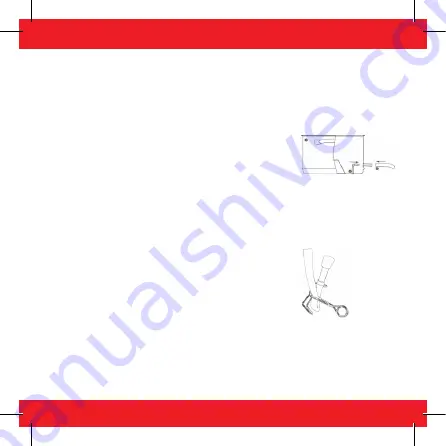
20
- Fill the water pot (4) with water until it is 2/3 full.
- Place the juice container (3) onto the water pot (4).
- Put the shorter end of the outflow angle (5) into the outlet nozzle of the juice container (3)
from the inside and turn the longer end so that it is at an angle to
the base. The outflow angle develops a suction
effect which allows the juice extractor to be emptied
to a large extent.
- Pull the drain hose (6) onto the outlet nozzle on the juice container (3) from the outside.
The hose must sit securely on the nozzle.
- Now put the sealing plug (7) onto the end of the drain hose (6).
- Press the hose clamp (8) together at the sides and slide it onto the drain hose to approx.
1 cm before the end of the hose (6). This makes the subsequent bottling of the juice easier.
- To prevent juice from dripping out of the drain hose during
the extraction, you should clip the hose clamp (8)
to the pot handle of the juice container (3) or double
up the hose and press it together with the hose clamp (8)
(see diagram).
- Place the fruit basket (2) onto the juice container (3) and put
the fruit that is to be extracted into the fruit basket (2) in layers
(if applicable with the sugar (the recommended amount
can be found in the following table or your recipe)).
- Put on the glass lid (1) and heat everything at a high setting on a burner that is
appropriate for the diameter of the base (see Heat sources (types of stove)).
- As soon as the water boils, reduce the heat supply. Ensure that the water boils evenly
during the extraction of the juice and that there is always sufficient liquid in the
water pot (4).













































